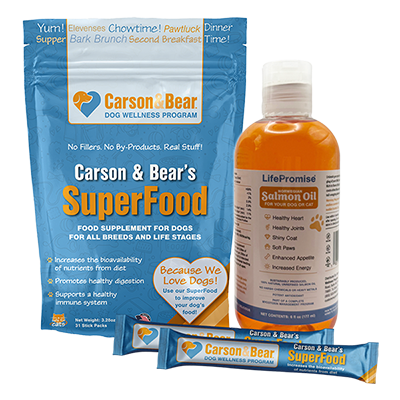Nutrition plays a critical role in disease prevention and overall vitality in dogs. One area of increasing interest is the incorporation of “superfoods” into canine diets. This article aims to provide a comprehensive exploration of these nutrient-dense ingredients, delving into their potential benefits, addressing common canine health concerns, and offering practical guidance on their safe and effective implementation.
Defining Superfoods for Dogs: Beyond Basic Nutrition
While all foods provide some level of nutrition, superfoods stand out due to their exceptional concentration of vitamins, minerals, antioxidants, and other bioactive compounds. These nutritional powerhouses go beyond simply sustaining basic functions; they actively contribute to enhancing your dog’s health and potentially mitigating the risk of various diseases.
The Multifaceted Benefits of Superfoods for Canine Health
Superfoods offer a wide range of potential advantages for dogs, impacting various aspects of their physiology:
- Immune System Support: A robust immune system is crucial for defending against infections and diseases. Superfoods rich in antioxidants, like berries and kale, help neutralize harmful free radicals that can damage cells and weaken the immune response.
- Enhanced Digestive Function: A healthy gut is fundamental to overall well-being. Superfoods high in fiber, such as pumpkin and sweet potatoes, promote regular bowel movements and prevent constipation. Furthermore, prebiotics, which are a type of fiber found in certain superfoods can nourish beneficial gut bacteria, contributing to a balanced microbiome.
- Skin and Coat Health: Skin allergies and coat issues are common in dogs. Omega-3 fatty acids EPA and DHA, found in abundance in some fish such as salmon, possess anti-inflammatory properties that can soothe irritated skin and reduce itching. Additionally, the vitamins and antioxidants in superfoods contribute to a healthy, shiny coat.
- Joint Health and Mobility: As dogs age, joint health becomes increasingly important. Superfoods like bone broth provide glucosamine and chondroitin, compounds that support cartilage health and reduce inflammation. Omega-3 fatty acids also play a role in reducing inflammation and maintaining joint mobility.
- Cognitive Function: Maintaining cognitive health is essential for all dogs, but particularly for senior dogs. Antioxidants in berries and other superfoods protect brain cells from damage, while omega-3 fatty acids support cognitive function and may help prevent age-related decline.
Targeting Specific Health Concerns with Superfoods: A Proactive Approach
Incorporating superfoods can be particularly beneficial for dogs with specific health issues:
- Allergies: Dogs with allergies often suffer from itchy skin, digestive problems, and other symptoms. Superfoods can help manage these issues by reducing inflammation and supporting immune function. Omega-3 fatty acids, found in salmon and some other fish such as sardines, are known for their anti-inflammatory effects. Additionally, incorporating probiotics, found in some fermented foods like yogurt (ensure its xylitol-free!), can help balance the gut microbiome, which plays a role in allergic responses.
- Gut Health: Digestive problems, such as diarrhea and constipation, can significantly impact a dog’s quality of life. Superfoods rich in fiber, like pumpkin and sweet potatoes, can help regulate bowel movements and promote a healthy gut. Bone broth can also be beneficial for gut health, as it contains gelatin, which can soothe the digestive tract.
Key Superfood Candidates for Canine Diets: A Closer Look
Let’s explore some of the top superfoods for dogs in more detail:
- Berries (Blueberries, Raspberries, Blackberries: These colorful fruits are packed with antioxidants, which combat oxidative stress and protect cells from damage. They are also a good source of fiber and vitamins, contributing to overall health.
- Pumpkin: This versatile vegetable is a nutritional powerhouse. It’s rich in fiber, which aids digestion and promotes regularity. Pumpkin also contains vitamins A and C, as well as potassium and other minerals.
- Salmon: This oily fish is an excellent source of omega-3 fatty acids, crucial for skin and coat health, brain function, and joint support. It’s also an excellent source of protein and other essential nutrients.
- Sweet Potatoes: These root vegetables are packed with vitamins, minerals, and antioxidants. They are a good source of fiber and provide a healthy source of energy.
- Kale: This leafy green is a nutritional superstar. It’s loaded with vitamins K, A, and C, along with fiber and antioxidants. Kale can be offered raw or cooked, but ensure it’s chopped into small pieces to prevent choking.
- Bone Broth: This nutrient-rich broth is made by simmering bones and connective tissue. It’s a good source of collagen, glucosamine, and chondroitin, which support joint health and mobility. Bone broth can also be soothing to the digestive system.
- Eggs: Eggs are a complete protein source, meaning they contain all the essential amino acids dogs need. They are also rich in vitamins, minerals, and antioxidants. Cook eggs thoroughly before feeding them to your dog.
- Carrots: Are rich in vitamin A and beta-carotene, which are important for good vision, and high in fiber, which promotes healthy digestion
- Ginger: This spice has anti-inflammatory properties and can aid digestion. It can be helpful for dogs with nausea or motion sickness. Offer ginger in moderation, as large amounts can cause stomach upset.
- Broccoli: is rich in vitamin C, high in fiber, low in calories, has antioxidant properties, and contains substances that support body detoxification.
Implementing Superfoods Responsibly: A Balanced Approach
While superfoods offer numerous benefits, it’s important to incorporate them responsibly:
- Moderation is Crucial: Even the healthiest foods should be given in moderation. Too much of any one food can lead to digestive upset or nutritional imbalances or extra calories. Talk to your integrative vet about the optimal amounts and ingredient selection.
- Gradual Introduction: When introducing any new food, start with small amounts to monitor your dog’s reaction. Watch for any signs of digestive upset, allergies, or other adverse reactions.
- Veterinary Consultation: If your dog has any underlying health conditions or allergies, consult your veterinarian before incorporating new foods. Your vet can advise you on appropriate serving sizes and potential interactions with medications or existing health issues.
- Dietary Diversity: Just like humans, dogs benefit from a varied diet. Don’t rely on just one or two superfoods. Offer a variety of nutrient-rich foods to ensure your dog receives a wide range of vitamins and minerals.
- Preparation and Serving: Ensure superfoods are prepared and served safely. Chop vegetables and fruits into bite-sized pieces to prevent choking, store prepared meals in glass containers to avoid plastic residue and refrigerate to prevent spoilage.
- Have toxic foods in mind: Chocolate, grapes and raisins, onions, xylitol, alcohol, caffeine, macadamia nuts.
Convenient Superfood Solutions: Bridging the Gap
For busy pet owners, incorporating fresh superfoods into every meal can be challenging. Fortunately, there are convenient options available:
- Commercial Superfood Supplements: Products like Carson & Bear’s Superfood offer a blend of nutrient-rich ingredients in a convenient powder form. These supplements can be sprinkled over your dog’s food to provide an extra boost of nutrition.
- Homemade Superfood Blends: If you prefer to make your own superfood blends, you can combine various ingredients like ground flaxseed, chia seeds, and dried berries. Store the blend in an airtight container and add it to your dog’s food as needed.
The Foundation of Canine Nutrition: A Holistic Perspective
While superfoods offer valuable nutritional support, they are not a replacement for a complete and balanced diet. High-quality dog food formulated for your dog’s life stage and breed size should remain the cornerstone of their nutrition plan. Superfoods should be viewed as a complement to their regular diet, providing an extra boost of nutrients and supporting overall health. Use the Carson & Bear TailScore app to analyze the quality of food you are feeding your dog.
Conclusion: Empowering Canine Health Through Superfoods
Strategic incorporation of superfoods can provide dogs with essential nutrients that enhance their overall health and well-being, and even help address specific health concerns like allergies and digestive issues. However, responsible implementation requires careful consideration of individual needs, moderation, and ongoing consultation with your veterinarian. By taking a proactive and informed approach to nutrition, you can empower your canine companion to thrive and enjoy a long, healthy life.



